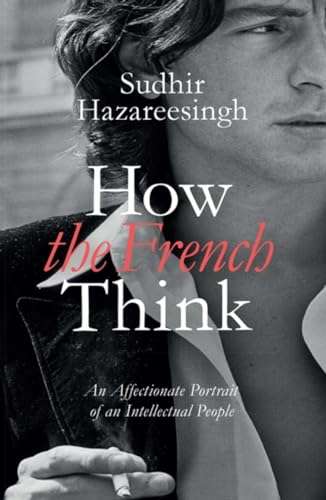
How the French Think: An Affectionate Portrait of an Intellectual People
Check my rate
| Main centres: | 1-3 business days |
| Regional areas: | 3-4 business days |
| Remote areas: | 3-5 business days |

| Main centres: | 1-3 business days |
| Regional areas: | 3-4 business days |
| Remote areas: | 3-5 business days |
Allen Lane, 2015, hyardcover, illustrated, index, 426 pages, condition: new.
Sudhir Hazareesingh's How the French Think is a warm yet incisive exploration of the French intellectual tradition, and its exceptional place in a nation's identity and lifestyle.
Why are the French an exceptional nation? Why do they think they are so exceptional? An important reason is that in France intellectual activity is regarded not just as the preserve of the thinking elite but for almost everyone. French thought can sometimes be austere and often opaque, yet it is undeniably bold and innovative, and driven by a relentless quest for the regeneration of humanity. Sudhir Hazareesingh traces its tumultuous history in an enormously enjoyable and highly original manner, showing how the French ways of thought and life connect. This will be one of the most revealing books written about them - or any other European country - for years.
Sudhir Hazareesingh was born in Mauritius. He is a Fellow of the British Academy and has been a Fellow and Tutor in Politics at Balliol College, Oxford, since 1990. Among his books are The Legend of Napoleon (Granta, 2004) and Le Mythe gaullien (Gallimard, 2010). He won the Prix du Memorial d'Ajaccio and the Prix de la Fondation Napoleon for the first of these, and a Prix d'Histoire du Senat for the second.
Excellent, solid primer on French philosophy, historiography and cultural character, written by an insider and thankfully steering extremely well clear of guffawing '100 Years of Annoying the French'-level Anglobullshit. Hazareesingh really, really knows his Descartes and his Derrida and guides us through the repeating patterns of the French worldview and self-perception, from the weakness of liberalism to the immovable belief in popular sovereignty, the passion for providential leaders and rupture, the contrarianism and slow sense of declinisme that's characterised the post-WW2 era. And, of course, the vaulting contrarianism and frustrating fixation with grand concepts and abstract propositions over detail and data. But it's affectionate too - and, for me, 'really ties the room together'.
Excellent work. I could have done with a little more on Vichy and Algeria, but that's another book.
What an amazing culture though - and just so very much to admire. (I just wish they'd drop the anti-Americanism and sign up to liberalism with full gusto - they'd be absolutely amazing if they did).
Highly recommended.